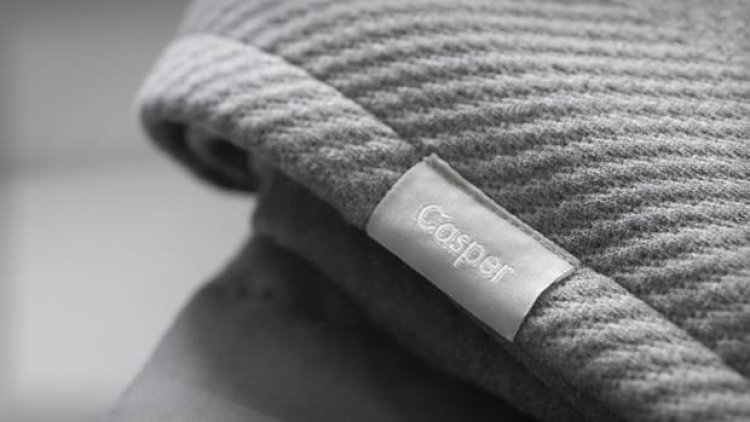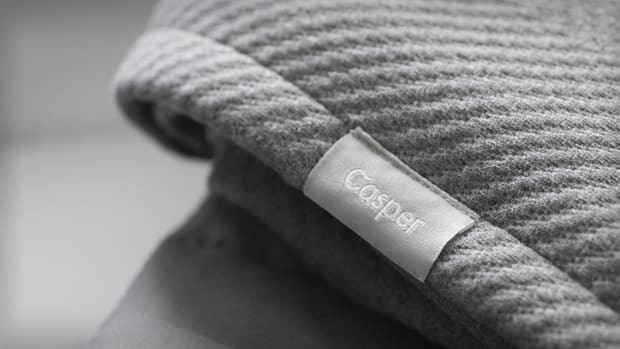Casper Sleep Is a Ghost of Its Former Self
Once a high tech startup that ignited excitement in mattresses, Casper is now just another cash cow in a private equity machine.

Once a high tech startup that ignited excitement in mattresses, Casper is now just another cash cow in a private equity machine.
Casper Sleep has awakened to a new reality.
The once high flying startup that improbably ignited excitement in mattresses now serves as a cash cow for the same private equity overlords who own Bojangles chicken restaurants.
Chicken and mattresses! Can you imagine the cross marketing opportunities?
Casper recently sold its Canadian operations to Sleep Country for $20.6 million. On the surface, that’s not surprising: American retailers have been exiting our northern neighbor of late.
But in reality, Casper selling out to sleepy old Sleep Country completes the ignominious circle of a fresh, innovative startup succumbing to the very industry forces it sought to replace. In addition to acquiring Casper’s Canadian operations, Sleep Country also acquired rights to own a stake in the company.
Such a deal would have been unthinkable in 2014 when Casper launched. For the get go, you knew Casper was different. A startup that wanted to make better mattresses received millions of dollars in venture capital from investors like New Enterprise Associates, SV Angel, and Target Corp. (TGT) - Get Free Report. Casper
Make Mattresses Cool
Casper did the impossible: the startup actually made mattresses cool, thanks to a savvy marketing campaign and a stable of celebrity investors, including actors Tobey McGuire and Leonardo DiCaprio and Maroon 5 frontman Adam Levine. Casper also played up its high tech bonafides, including a research and development center in San Francisco.
But Casper was more than hype. Just as Warby Parker upended the eyeglass industry, Casper solved perhaps the biggest problem with mattresses: the process of buying them really sucked.
Mattresses are big, expensive, and hard to transport. But thanks to advances in polymer chemistry, Casper could produce mattresses from cheaper materials and allow the product to be folded into a box for shipment, and then unfolded at a customer’s home. Consumers could return the mattress for free after a trial period.
Soon, Casper earned a $1 billion valuation, joining a flock of well funded private startups from Silicon Valley known as unicorns.
As Casper emerged, other mattress firms joined the spotlight, including Leesa Sleep, Tufts & Needle, and Zina.
The Dream Is Over
But then the mattress bubble popped. Industry veteran Serta Simmons Bedding bought Tufts & Needle in 2018. And last month, an entity called 3Z Brands acquired Leesa for an undisclosed sum.
As for Casper, the company suffered from horrendously bad timing. The company went public in February 2020, right before the global pandemic shut down the economy.
According to the last annual report it filed with the Securities and Exchange Commission, Casper reported a net loss of nearly $90 million on revenues of $497 million in 2020, compared to a net loss of $93 million on revenues of $439 million in the prior year.
In November 2021, private equity firm Durational Capital Management bought the company.
When a Wall Street firm ominously named Durational acquires your company, you know talk of changing the world is over. Tobey and Leo won’t be attending the office Christmas party.
“We’re not in the business of not making money anymore,” Casper CEO Emilie Arel recently said at eTail’s Boston conference. “VC money is not falling from the ceiling anymore, we need to be very specific on what we’re working on. And so moving from being a lifestyle brand — being sort of the Nike of sleep, selling to everybody — to: ‘We are a mattress retailer.’”
Indeed, the company’s once vaunted R&D lab has posted on its blog since June 2021.
In buying Casper’s Canadian business, Sleep Country also receives three year warrants it can later convert into a 1% stake in the company. And in exchange for another $20 million investment, Sleep Country obtains rights to stock worth 5% of Casper.
Sounds like Sleep Country is the logical buyer for Casper once Durational decided to exit. Once that happens, Casper as a company disappears, a ghost of its former self.
What's Your Reaction?



























































